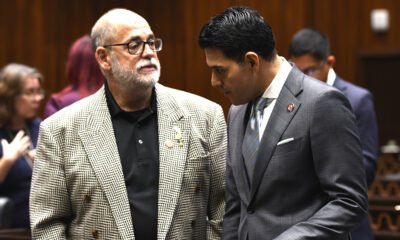abortion
Arizonans Greenlight Prop 139: Historic Expansion of Abortion Access Until Birth

By Daniel Stefanski |
Arizona voters have made a significant decision regarding reproductive rights, with the approval of Proposition 139. This bold measure, passed in the recent election with over 61% support, enshrines the right to abortion within the Arizona Constitution. The amendment establishes a “fundamental right” to abortion up to “fetal viability,” which includes the potential for the procedure to be performed late in pregnancy.
Following the announcement of the results, Arizona for Abortion Access released an enthusiastic statement on social media. They celebrated the victory, declaring, “We did it! Arizona has overwhelmingly voted to protect abortion access! We proved, yet again, that Arizona is a state that values freedom and individual rights. Thank you to the thousands of voters, volunteers, and donors – this victory belongs to you.”
In contrast, Pastor Eric Jones, a leader in the opposition campaign, expressed his disappointment over the ballot measure’s passage. He reflected on the collaboration of over 700 Christian pastors who united against Proposition 139, emphasizing their commitment to the sanctity of life. In his Facebook post, he urged his followers to remain steadfast in their beliefs, quoting Psalm 133:1 to highlight the value of unity among believers.
Cathi Herrod, another prominent voice in the pro-life movement, criticized the implications of the amendment. She warned that Arizona would face regrettable consequences, including potential loss of healthcare access for women. Herrod accused proponents of the proposition of misleading the public about existing laws regarding miscarriages, asserting that the measure prioritizes unrestricted abortion access over women’s health and safety.
Historically, Arizona has been recognized as a stronghold for pro-life policies, influenced by Republican leadership and activism. The passage of Proposition 139, however, complicates the ability of state legislators to alter existing laws regarding abortion, as any changes would require a supermajority rather than a simple majority. This new constitutional protection represents a significant shift in the state’s approach to reproductive rights.
Daniel Stefanski is a reporter for AZ Free News. You can send him news tips using this link.


















